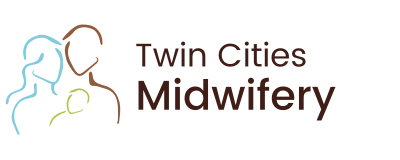06 Feb Green Cleaning Tips by Maegen Tabor
Cleaning products are everywhere in our home, on dishes, countertops, furniture, clothes, floors, windows, even floating through the air. In our quest to keep dirt and germs away we often are actually making things worse.
Most of the conventional cleaning products we all grew up with are petroleum-based and have many health and environmental implications. Instead of opting for cleaning products that kill everything in their path, there are plenty of natural products and methods that keep a house clean and fresh-smelling without the toxic side effects.
Here are some tips to keeping your house healthy and clean in a more natural way:
- Use green cleaning products. The health and environmental impacts of conventional cleaning products become more thoroughly understood, more and more brands of healthy, green, and effective cleaning products have started hitting the market. Many of these products are non-toxic, biodegradable, and made from renewable resources (not petroleum).
- Be careful with antibacterial cleaners. The antibacterial and antimicrobial ‘cleaners’ that many people think are necessary, do not clean hands better than soap and water. The FDA has found that antibacterial soaps and hand cleansers do not work better than regular soap and water, and should be avoided.
- Avoid poor indoor air quality. It is not uncommon for the air inside a home or office to be more toxic than the air outside. This is because of the presence of toxic materials and substances and the fact that homes and buildings are better insulated than ever before. Keeping windows open as often as possible allows fresh air in and keeps toxins flowing out. This is especially important when cleaning your home.
- Use a safe laundry alternative. We all want to make sure our clothes are clean and fresh. Ironically, the very detergents that we use to make our clothes “clean” may actually be leaving them worse off than they were before. That’s because most commercial laundry detergents, the common brands you find at stores, are loaded with potentially toxic chemicals that could harm you, your family and the environment. These include: Phenols-According to the National Institutes of Health, phenol is toxic and people who are hypersensitive to it could experience death or serious side effects at very low exposures. Phosphates: These chemicals are used to remove hard-water minerals to make detergents more effective, and to prevent dirt from settling back onto clothes during a wash. A major problem with them is that, when released into the environment, they stimulate the growth of certain marine plants, which contributes to unbalanced ecosystems. Many states have banned or restricted the use of phosphates for this reason. Artificial fragrances: Many of these can be made from petroleum, and do not degrade in the environment. They’ve been linked to various toxic effects on fish and mammals, and often cause allergies and skin and eye irritation.
There are many safe alternatives on market shelves for many of your standard cleaning products. Another great idea is to find a recipe and make your own cleaning products at home. Below is a great recipe for a safe and effective laundry detergent. Happy Cleaning!
Simple Powdered Laundry Formula
1 bar of shaved bar soap (Ivory, ZOTE, Fels-Naptha)
1 cup of borax
1 cup of washing soda
Stir together for 5 minutes, store in an airtight container.
Each batch yields approximately 32 ounces. Use 1-2 tbsp per load.




Environmental Cleaning Products
Posted at 02:44h, 16 FebruaryIt’s very thoughtful post. I agree with you. It’s very important for clean and safe environment. Eco Friendly products makes our life at work easier. We are providing the tools that you need to keep your workplace clean, tidy and functional. Thank you !!!!
Twin Cities janitorial
Posted at 19:12h, 26 JuneKeeping your windows open promotes good ventilation as well as allowing dirt, dust, and harmful substances to flow out of the house. Adequate ventilation also prevents mold and mildew from growing inside moist areas such as the kitchen and bathroom.